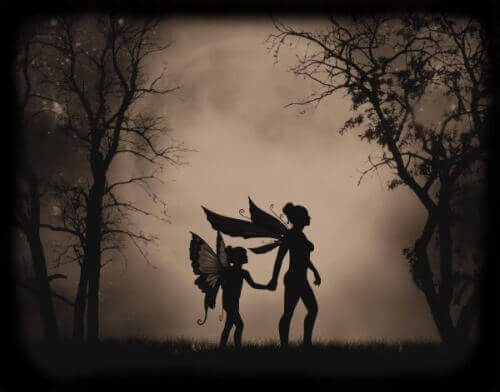A child was not born to sit, watch TV or play with the tablet; a child doesn’t want to be silent all the time.
They need to move, explore, search for news, create adventures and discover the world around them. They learn, they are sponges, playful creams, treasure hunters, potential earthquakes.
- They are free and pure souls who try to fly.
- Not stay in the corners.
- Bound or handcuffed.
- Let us not make them slaves of adulthood.
- Haste and lack of imagination of the ancients.
Let us not rush them to our world of missenchantment, but improve their ability to be surprised, we must ensure that they have an emotional, social and cognitive life rich in content, floral aromas, sensory expression, joy and knowledge.
The game has benefits for children at all levels (physiological-emotional, behavioral and cognitive) that are not new, in fact, we can talk about several interdependent impacts it offers:
All this encourages an optimal state of imagination and creativity, helping them to enjoy the fantasy that surrounds them.
Society feeds hyperpaternity, that is, parents’ obsession with their children acquiring specific skills that guarantee good work in the future, and as a society and educators we forget that children are worthless at their level and that by not slowing down our efforts to prioritize outcomes, we are neglecting life skills.
The value of our children is that of small people who need to be loved regardless of everything, they are not defined by their achievements or failures, but by themselves, unique in nature. As children, we are not responsible for what we receive in childhood. , but as adults we are fully responsible for correcting it.
Is each person unique, it’s something we often say but still have little internalized. This is evident in a simple fact: we have established a set of rules to educate all our children.
This is really a widespread error and is by no means consistent with what we believe (that each person is unique), so it is no surprise that the confluence of our values and attitudes is in conflict with creation.
On the other hand, as Kim Payne, an American teacher and counselor, says, we raise our children beyond exactly four pillars:
We prevent them from exploring, reflecting or freeing themselves from the tensions that exist in everyday life, we fill them with technology, toys, school and after-school activities, distort children and, more seriously, prevent them from playing and developing.
Currently, children spend less time outdoors than prisoners. Why do we keep them entertained and busy? In other activities that we find more necessary to try to keep them clean and not get dirty with mud, this is unacceptable and, above all, extremely worrying. Let’s look at some reasons why we need to change that.
We could go on, but really, at this point, I think most of us have already found countless reasons that show that we are destroying the magic of childhood, as educator Francesco Tonucci says:
The children’s experience must be the food of the school: their lives, their surprises and their discoveries, my teacher always asked us to empty our pockets in the classroom, because they were full of witnesses from the outside world: animals, threads, figurines, bullets. ? Because today we should do the opposite, ask the children to show what they have in their pocket, in this way the school would open to life, welcoming the children with their knowledge and working around them ?.
It is certainly a much healthier way to work with them, educate them and ensure their success. If at any point you forget, you should keep in mind the following: “If a child does not need to rush into the bath, he has not played enough. ” This is the fundamental premise of a good education.

